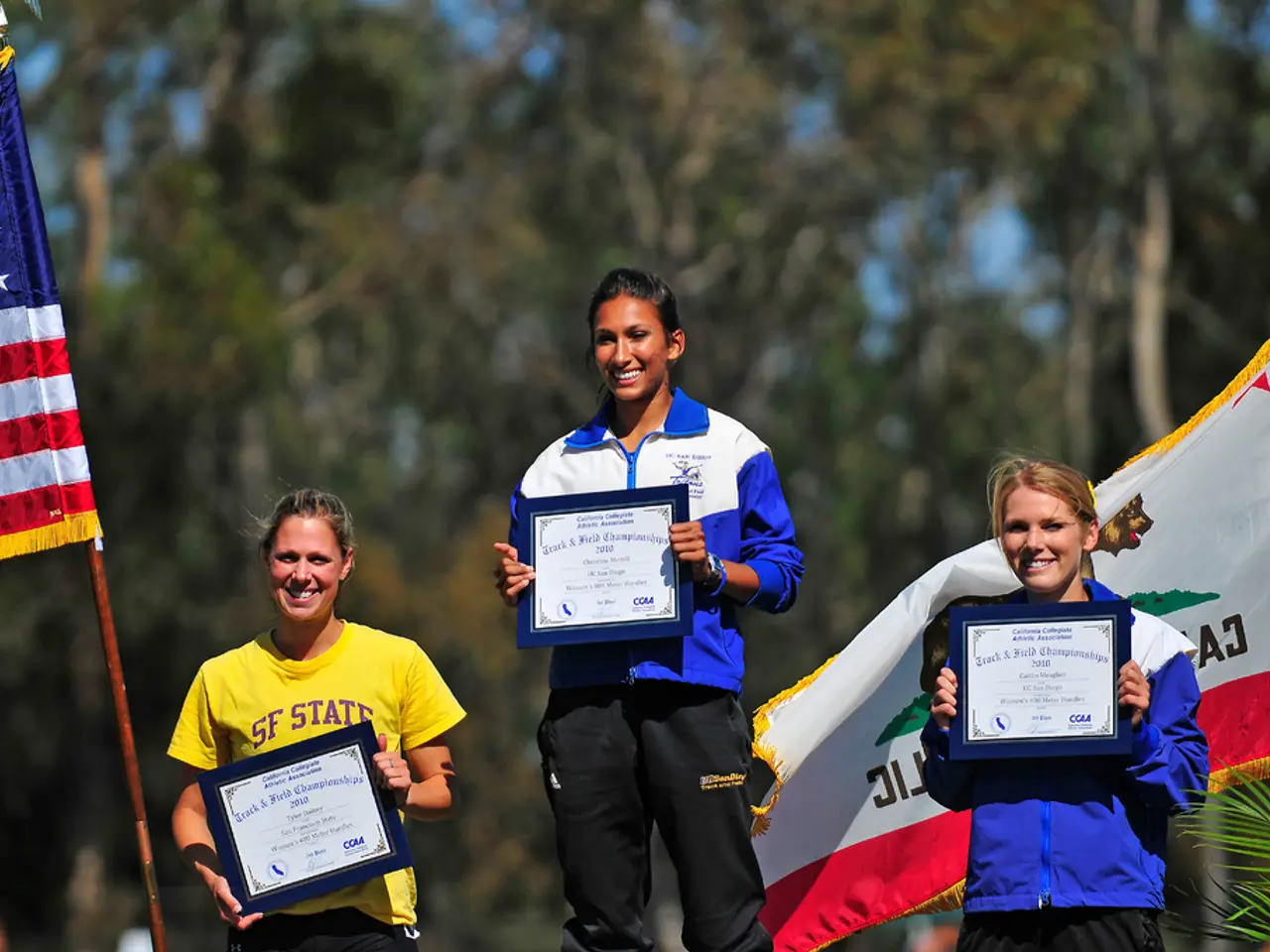Increase in Women in Science - Growing Presence of Female Researchers
In the realm of scientific research, there are numerous individuals and projects making significant strides towards addressing some of the world's most pressing issues. This article highlights a few of these initiatives, focusing on climate action and the protection of fragile ecosystems.
Marieke Oudelaar, a researcher at the Max Planck Institute, is one such trailblazer. Specialising in the study of how DNA controls our genes, Oudelaar's work is paving the way for a deeper understanding of genetic regulation.
Meanwhile, in Tübingen, the Geo and Environmental Center is spearheading the NETPEC project. This innovative venture aims to develop artificial photosynthesis systems capable of removing CO2 from the atmosphere. Although still in its experimental stages, the technology could prove instrumental in offsetting emissions and supporting climate goals. It's crucial to note that while this technology offers a valuable backup, it should not replace the urgent need to end fossil fuel use.
Climatologist Kira Rehfeld is another key player in the fight against climate change. She is working tirelessly on methods for removing and storing carbon dioxide from the atmosphere, a process known as 'negative emissions'.
Peatlands, such as bogs and fens, are another critical focus area. These ecosystems store more carbon than forests and support rare biodiversity. The protection and rewetting of peatlands is a cause championed by German expert Franziska Tanneberger. Her work bridges science, policy, and farming, promoting sustainable land use and climate protection.
The importance of listening and collaboration in preserving these fragile ecosystems cannot be overstated. Peatlands, for instance, if drained, emit 7% of Germany's greenhouse gases.
In a different field, archaeologist Pia Kruszewski is delving into the ancient mysteries of mummification techniques used by the Egyptians. Her research offers valuable insights into the past, shedding light on historical practices and their potential applications in modern conservation efforts.
Elsewhere, chemist Claude Grison is transforming invasive plant species in France into ecocatalysts. These ecocatalysts are being utilised by various industries, including cosmetics, demonstrating the potential for sustainable solutions in unexpected places.
Lastly, it's worth celebrating the achievements of women like Marieke Oudelaar, who have risen to leadership positions in science despite facing old prejudices. Oudelaar's work is a testament to the power of determination and the importance of representation in the scientific community.
Stay tuned for more updates on these fascinating projects and the inspiring individuals driving them. The English content of our website will be broadcast at the following times:
- SAT 20.09.2025 - 01:30 UTCSAT 20.09.2025 - 07:30 UTCSAT 20.09.2025 - 23:30 UTCSUN 21.09.2025 - 21:30 UTC
- MON 22.09.2025 - 05:30 UTCMON 22.09.2025 - 14:30 UTCTUE 23.09.2025 - 10:30 UTCTUE 23.09.2025 - 19:30 UTCTHU 25.09.2025 - 08:30 UTC
For more information about time zones, cities like Lagos, Cape Town, Nairobi, Delhi, Bangkok, Hong Kong, London, Berlin, Moscow, San Francisco, Edmonton, and New York are located in UTC +1, UTC +2, UTC +3, UTC +5.5, UTC +7, UTC +8, UTC +1, UTC +2, UTC +3, UTC -7, UTC -6, and UTC -4 respectively.






